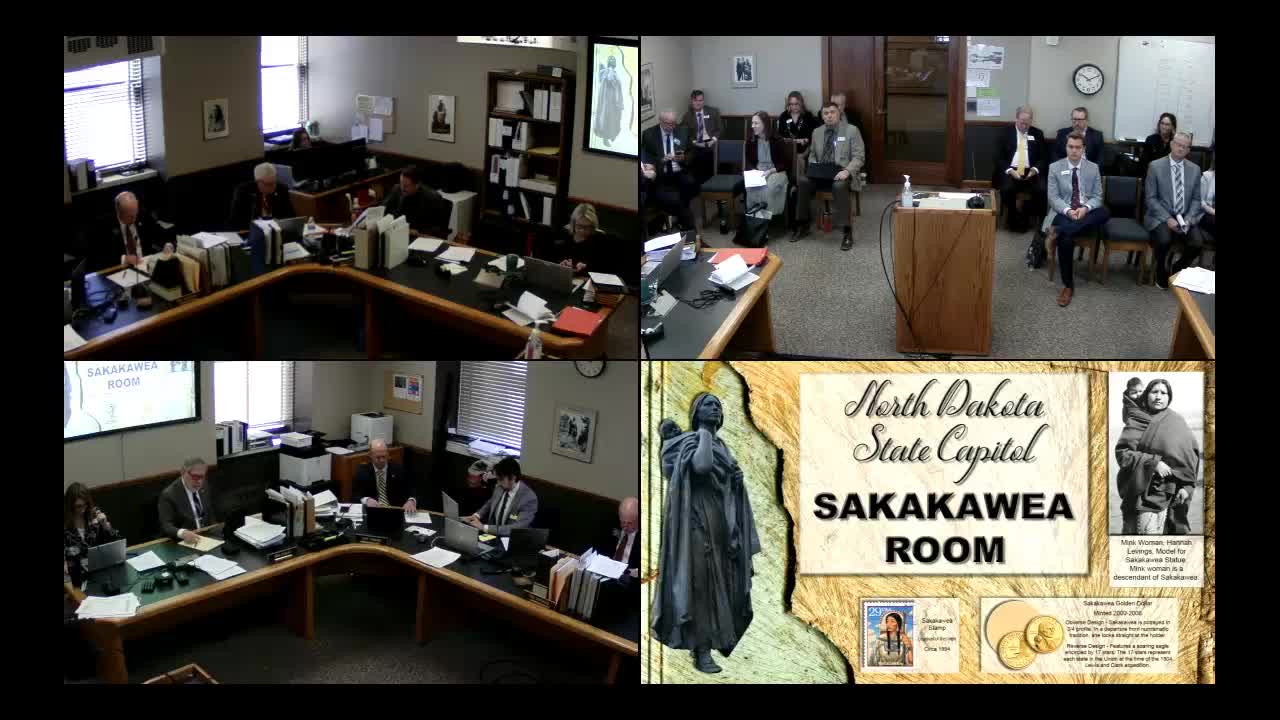Bank of North Dakota, DPI warn administrative, timeline and cost hurdles for education savings account bill
Get AI-powered insights, summaries, and transcripts
Subscribe
Summary
Bank of North Dakota and Department of Public Instruction officials told the Appropriations - Education and Environment Division that implementing the education savings account bill in its current form would require outside vendors, auditing, additional staffing and more time than the bill’s timeline allows.
Bank of North Dakota officials and the Department of Public Instruction told the Appropriations - Education and Environment Division on Oct. 12 that a proposed education savings account program in Senate Bill 1540 would require substantial administrative work, a third-party program manager, auditing oversight and more time than the bill’s current schedule allows.
Kelvin Hull, the Bank of North Dakota’s chief business development officer, told the committee that administering the program is "way outside of sort of our mission at the bank" and that the bank would hire a program manager rather than build the full operating capacity internally. Hull said the bank reviewed the bill and proposed language changes to clarify the roles of a program administrator and program manager and to shift operational responsibilities, including parent notifications and appeals procedures, to the program manager.
Allison Lisonbee Anderson, chief banking and innovation officer at the Bank of North Dakota, said the fiscal note for the administrative components prepared with the Department of Public Instruction is currently about $5.1 million. She said implementation would likely require a consultant with education-savings-account expertise, a program manager/vendor to supply software and call-center support, and at least 12–15 months for software and portal development after vendor selection. "It would be very difficult to implement this on the timeline," she told lawmakers, noting standard procurement and major IT project processes would add time.
Adam Tesher, school finance officer at the Department of Public Instruction, flagged data and assessment issues: the department does not currently collect family income data tied to state assessments and recommended removing a requirement to desegregate assessment results by family income level unless a collection method is established. Tesher and bank staff also discussed auditing procedures, proposing the state auditor be contracted for annual audits and that the attorney general be notified when audits suggest misuse of funds.
Senators discussed means-testing language. Senator Shively presented an amendment that would add a 300 percent of poverty-level means test; Senator Scheibe introduced an alternative tiered approach (starting with a 200% tier) intended to limit initial fiscal exposure while leaving eligibility definitions unchanged so future legislative changes would not require altering the bill’s core definitions. Tesher said the state currently tracks the 200% threshold and estimated just over 700 qualifying students in nonpublic schools at that level; the committee heard that about 8,000 private-school students exist statewide in a related context.
Committee members also discussed program costs reported from other states and vendor estimates. Bank staff said vendor implementation costs were estimated at about $750,000 and that program-manager fees are often structured as per-student licensing plus a percentage of dollars flowing through accounts. A vendor named Odyssey was identified in research, and bank staff said there are at least two or three other potential marketplace vendors.
The committee did not take final action on SB 1540. Members agreed to separate consideration of administrative clarifications requested by the Bank of North Dakota and DPI from the policy questions on means testing. The panel said it would reconvene after session to further review amendments and fiscal math before making a recommendation.
